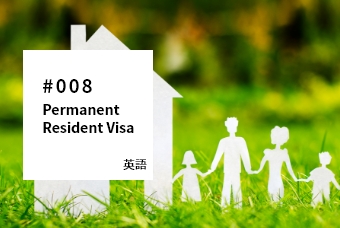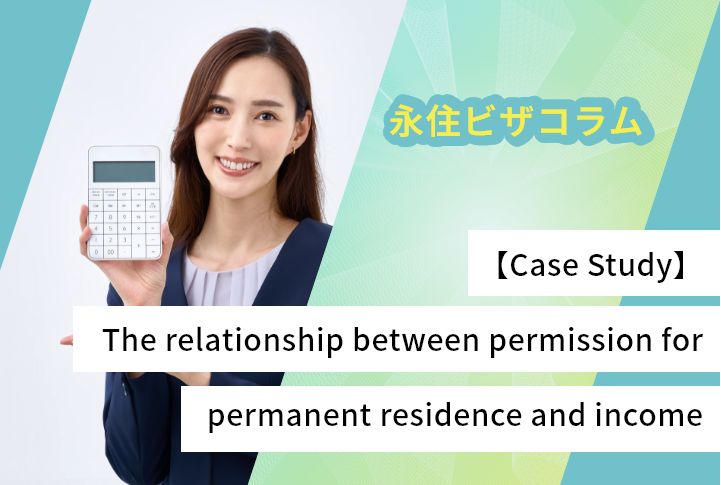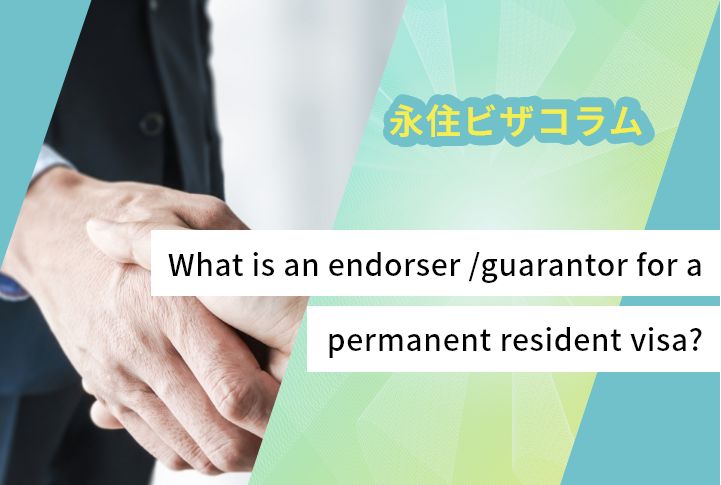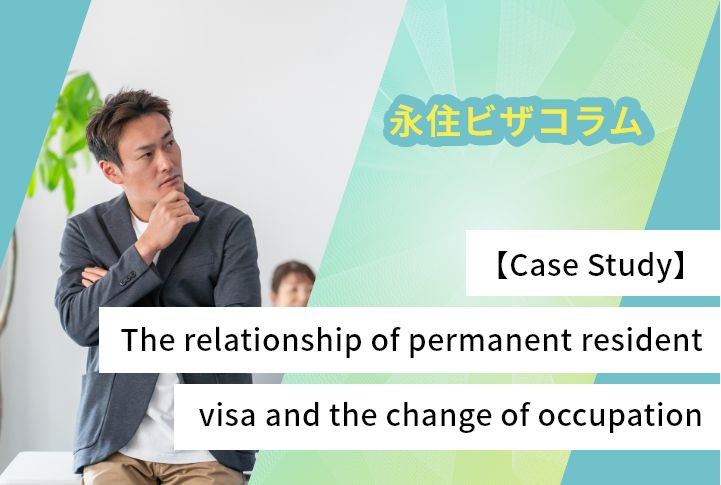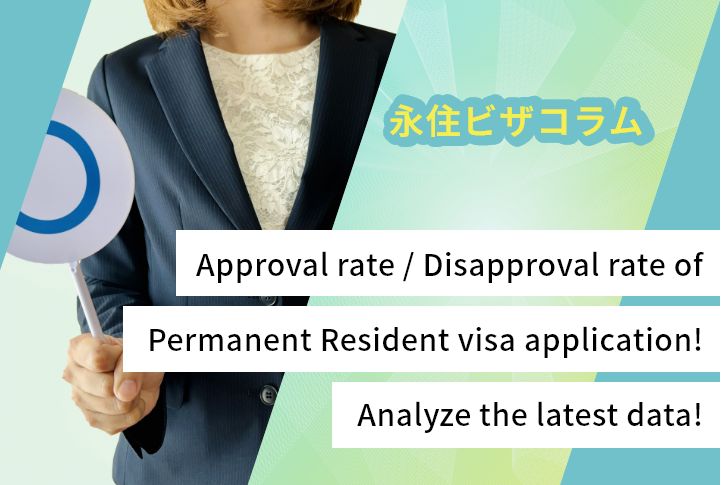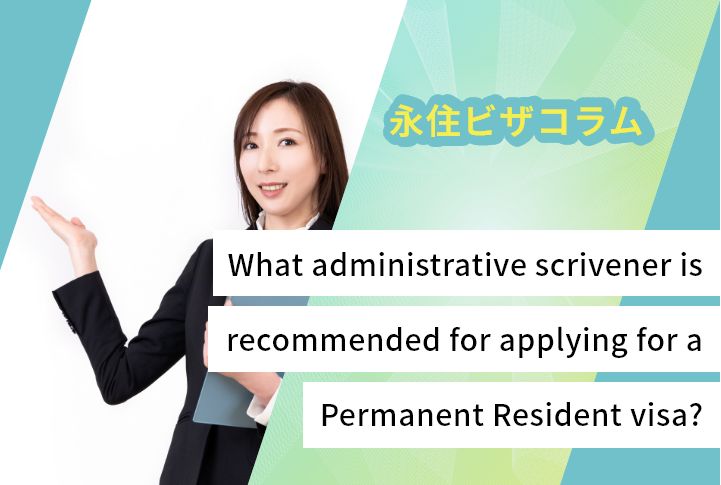【Case Study】What happens to the wife’s dependent visa if her husband obtains a permanent resident visa?
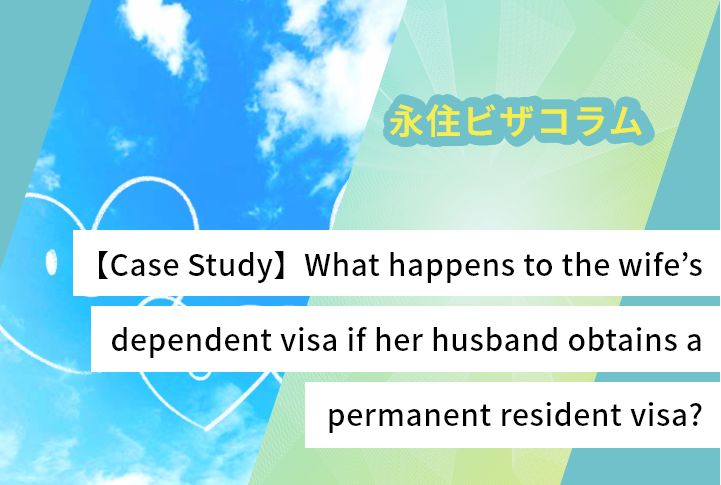
Mr. A, a Korean male who came to Japan 15 years ago, used to have a visa of engineer/specialist in humanities/ international services, but finally got a permanent resident visa, which he always wished for. Mr. A got married to Ms. B (Korean) 5 years ago and have 2 children now (4 years old and 7 months. Both of them were born in Japan.), so there are 4 people in his family now.
After Mr. A changed his visa from a work visa to a permanent resident visa, Ms. B and 2 children have stayed in Japan on dependent visas.
Mr. A came to us for free consultation to ask if there is any problem about Ms. B and their 2 children staying on dependent visas.
Index
1. Introduction
When a person on a work visa obtains a permanent resident visa, do the family members of the person have to change their visas from dependent visas?
In this article, we will explain about issues occurring when other family members do not apply for a permanent resident visa and how to settle such issues.
2. What is a dependent visa?
The purpose of dependent visas is to accept dependents of foreigners who stay in Japan on certain status of residence.
In the case above, it’s a visa to invite Ms. B and 2 children who are the family of Mr. A (who has a visa of engineer/specialist in humanities/ international services) to Japan.
In this case, we were asked whether Ms. B and 2 children’s dependent visas are affected by Mr. A (with a visa of engineer/specialist in humanities/ international services)’s obtaining a permanent resident visa.
The answer is in the explanation about a dependent visa stated above.
The purpose of dependent visas is to accept dependents of foreigners who stay in Japan on “certain status of residence.” The “certain status of residence” hereof means status of residence of “professor,” “artist,” “religious activities,” “journalist,” “highly skilled professional,” “business manager,” “legal/accounting services,” “medical services,” “researcher,” “instructor,” “engineer/specialist in humanities/international services,” “intra-company transferee,” “nursing care,” “entertainer,” “skilled labor,” “cultural activities,” and “student,” and does not include permanent resident.
Consequently, if the status of residence of a foreigner who has one of the “certain status of residence” is changed to the status of residence of “permanent resident,” the members in his/her family who are supported by him/her must also change their status of residence.
To summarize:
1) Mr. A was on a visa of engineer/specialist in humanities/ international services, Ms. B was on a dependent visa, and their children were on dependent visas.
2) However, since Mr. A obtained a permanent resident visa, Ms. B and the children do not fulfill requirements for a dependent visa any more.
3) As a result, Ms. B and the children have to change their status of residence.
3. Which visa does a dependent visa should be changed to?
(1) In case of a spouse
When a foreigner with one of the “certain status of residence” obtains a permanent resident visa, his/her spouse must change to the visa of “spouse or child of permanent resident.” We will not explain the requirements for the visa of “spouse or child of permanent resident,” but those who fulfill the requirements for a dependent visa should not have any problem in general.
(2) In case of a child
A child must change to a long-term resident visa. Long-term resident visa is classified into persons listed on a public notice (kokuji-teiju) and persons not listed on a public notice (kokujigai-teiju). In case where a supporter becomes a permanent resident, his/her child needs to get a visa of long-term resident visa for persons listed on a public notice.
(Reference)
〇Specification of the Position Listed in the Right-Hand Column Corresponding to “Long-Term Resident” as Specified in Appended Table II of the Immigration Control and Refugee Recognition Act Pursuant to the Provision of Article 7, Paragraph (1), Item (ii) of the Same Act
(public notice by the Ministry of Justice No. 132 in 1990)
(Omitted)
6. Status pertaining to a person falling under any of the following (excluding any person falling under items (i) through (iv) or item (viii)):
b. An unmarried minor who is a biological child of and whose living is supported by a person who has a Japanese nationality, a person residing in Japan with a status of residence of permanent resident, or a person who is a special permanent resident (hereinafter referred to as a “special permanent resident”) as stipulated in the Special Act on the Immigration Control of, Inter Alia, Those Who Have Lost Japanese Nationality on the Basis of the Treaty of Peace with Japan (Act No. 71 of 1991).
(Omitted)
4. How to avoid a complicated situation
4. How to avoid a complicated situation
If a supporting person obtains a permanent resident visa, those who has a dependent visa must change their visas as stated above.
A dependent visa is connected to the “certain status of residence” mentioned above; therefore, dependent visas are affected by change of such “certain status of residence.”
To avoid such complex situation, we recommend that everyone in the family apply for a permanent resident visa together.
In the case above, there should have been no issues if the whole family applied for a permanent resident visa at once.
In addition, the numbers of visa applications are different between a case of application for the whole family and other cases.
<In case all family members are applying for permanent resident visas>
1) Application for permanent resident visas for Mr. A , Ms. B, 2 children
<In the case above>
1) Mr. A: Application for permanent resident visas
2) Ms. B: Application for changing to a visa of spouse or child of permanent resident
3) Children: Application to change to permanent resident visa
4) Application for permanent resident visas for Ms. B and child
Note: 2), 3), and 4) can be done at the same time.
From above comparison, applying for permanent resident visas for the entire family is clearly advantageous, but there are cases where application cannot for the whole family is not possible due to the period of marriage (of the spouse), age (of a child), etc.
We cannot introduce every specific case, so please consult with a administrative scrivener specialized in international matters as to how everyone in the family can receive a permanent resident visa most quickly.
5. Summary
In this article, we wrote from a unique aspect, but it’s an important matter.
We have conducted hearings concerning reasons why applicants hesitate to apply for permanent residence for entire family at the same time. According to the hearings, the popular reason is that they are uncertain about the requirements.
Indeed, comparing to one person changing from a work visa to a permanent resident visa, there are more matters to consider such as matters related to spouse and child.
In such case, please consult with an international administrative scrivener to plan about visa matters.
There are many administrative scrivener offices which have free consultation. In fact, many of the questions may be solved by such free consultation alone.
Application for a permanent resident visa is the compilation of life in Japan for foreigners, so it’s a very important kind of application.
We recommend to prepare for application for a permanent resident visa by acquiring precise knowledges, not hazy knowledges.








